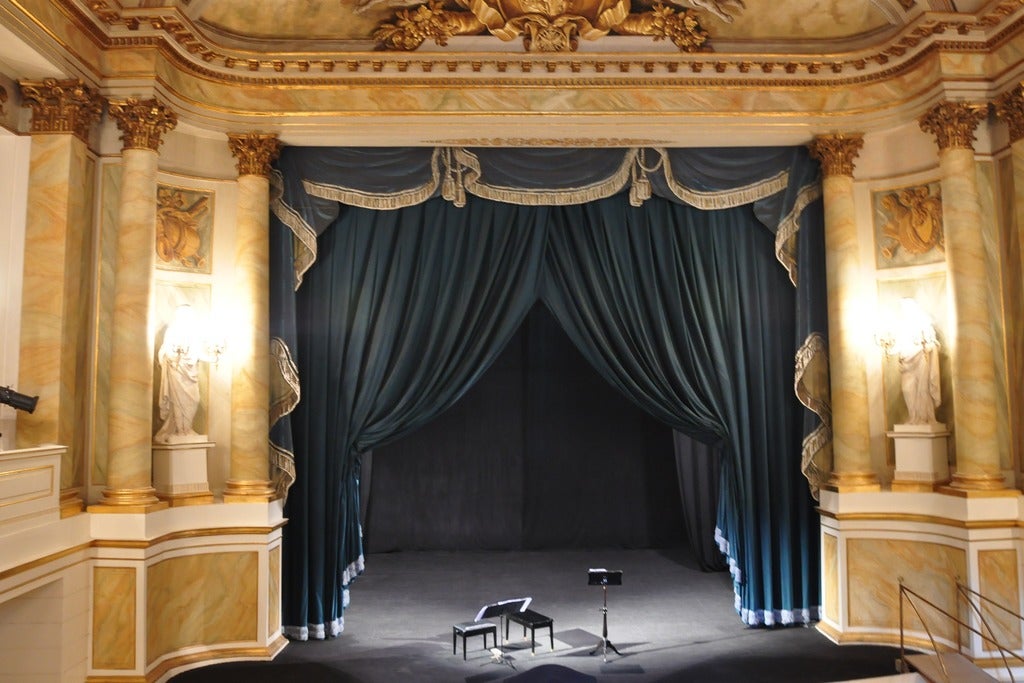A simple E flat major chord, austere and unchanging, inaudible up until now but no doubt present since all eternity. Scarcely perceptible at first, the sound unfurls, twisting over and under waves and currents; the breakers, “rolling the reflected heavens, blended in a solemn and mystical way, the all-powerful chords of their rich harmonies” (Baudelaire, A Former Life): It may be the Rhine, but it is above all the world captured in both its perpetual motion and its permanence. It was enough for Wagner to maintain this chord for the first 137 bars of the work to recreate the world before us and evoke its eternity and its metamorphoses. At the same time, out of this fixed chord –which by nature is fundamental—all music seems to originate. “No one has ever composed like this”, wrote Wagner, both happy yet terrified, to his friend Franz Liszt.
Cast and Creative team for Das Rheingold at Opéra national de Paris - Opéra Bastille
Günter Krämer Stage director
Jürgen Bäckmann Sets
Falk Bauer Costumes
Diego Leetz Lighting
Otto Pichler Choreography
Stefan Bischoff Création images vidéo
Patrick Marie Aubert Chorus Master
Egils Silins Wotan
Samuel Youn Donner
Bernard Richter Froh
Kim Begley Loge
Peter Sidhom Alberich
Wolfgang Ablingersperrhacke Mime
Lars Woldt Fasolt
Günther Groissböck Fafner
Sophie Koch Fricka
Edith Haller Freia
Qiu Lin Zhang Erda
Caroline Stein Woglinde
Louise Callinan Wellgunde
Wiebke Lehmkuhl Flosshilde
Videos

|
The Music of Hans Zimmer & Others
Maihaugsalen (11/19 - 11/19) | |

|
Derfor skaber du dit eget liv - med baggrund i kvantefysikken
Sønderborghus (5/14 - 5/14) | |

|
LE BRACELET
GARE DU MIDI (5/3 - 5/3) | |

|
KAVI esittää: Andrzej Wajda: SUKUPOLVI
Studio, Kulttuuritalo Valve (3/18 - 3/18) | |

|
LES CHATOUILLES
LA PEPINIERE THEATRE (2/4 - 4/26) | |

|
The Mystery of Banksy
Art Maze (5/16 - 9/21) | |

|
Danske Drabssager - en aften med eksperterne
Magasinet (10/6 - 10/6) | |
| VIEW SHOWS ADD A SHOW | ||
Recommended For You


